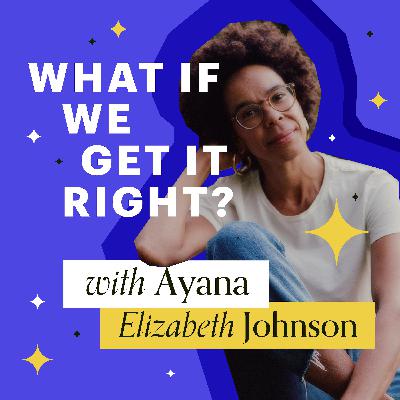Make Biking Cool (Again)!
Description
Work. School. The grocery store. We all need to get somewhere. But how we get there has huge implications for the climate. In the United States, transportation - mainly from cars - makes up roughly a quarter of greenhouse gas emissions. It's true, Electric vehicles help reduce emissions. But experts say that to truly give the climate (and humanity) a chance, we need fewer people reliant on cars of any kind. And that means using alternatives like mass transit, walking, and bicycles. But for a long time in the United States, cycling has gotten a bad rep. They're seen as toys and recreation - not transportation. So, we take a look at how cycling developed its dorky reputation. And, then, we counter it with some propaganda of our own. Because bicycling is not just better for the planet, it's fun, and freeing, and accessible for way more people than you might think.
If you like Peter's jingle from the episode, you can download it here.
Guests
- Justin Gonzalez, Bike New York
- Chantal Hardy,Bike New York
- Louis Quinones, Bike New York
- Peter Leonard, Gimlet/Spotify
- April Streeter, Author, Women on Wheels: The Scandalous Untold Histories of Women in Bicycling
- Anders Swanson, Plain Bicycle Project
- Anna Zivarts, Disability Rights Washington
Calls to Action:
Go for a bike ride. if it's been awhile since you've ridden a bike, go ride a bike - it's ok to take it slow.- If you can't ride a bike, Learn to Ride A Bike. In the United States, The League of American Cyclists has resources on where you can find classes. Bike shops and a quick search through your favorite search engine are also great ways to find classes. For people with disabilities, iCan Bike an offshoot of the nonprofit iCanShine offers 5 day bike camps around the United States. If you're willing to try on your own, Bicycling Magazine has a guide.
Push for better bike infrastructure. People for Bikes has an online "Advocacy Academy," on about on how to advocate for better bike infrastructure. The whole series is worth watching but we especially want to highlight two videos: Making a Better Bike Lane and Slow Streets are Safe Streets. The League of American Cyclists also has advocacy tools, Bicycling magazine also published this advocacy guide.
Dig into your auto club. If you have an auto club membership, like AAA, make sure they are supporting cycling. According to news reports AAA has lobbied against public transit and cycling infrastructure. If you're a member, reach out to let them know you're pro cycling. If you're looking to jump ship altogether - there are alternatives. You can try contacting your auto insurance for roadside assistance or try a third party like Better World Club. They, like AAA, also offer roadside assistance for bikes.
Further Reading and Listening
- The nonprofit AdaptAbility works to get adaptive bicycles in the hands of people with disabilities who could not otherwise afford them.
The National Association of Transportation Officials has a guide on designing bicycle infrastructure for all ages and abilities.
If you take an action we recommend in one of our episodes, do us a favor and tell us about it! We’d love to hear how it went. Record a short voice memo on your phone and send it to us via our Listener Mail Form. We might use it in an upcoming episode. You can find all the actions we’ve recommended on our show here!
How to Save a Planet is a Spotify original podcast and Gimlet production. It's hosted by Alex Blumberg, and this week by me, Kendra Pierre-Louis. This episode was produced by Kendra Pierre-Louis. The rest of our reporting and producing team includesDaniel Ackerman, Anna Ladd, and Rachel Waldholz. Our supervising producer is Matt Shilts. Our editor is Caitlin Kenney. Our intern is Janae Morris. Sound design and mixing by Hansdale Hsu(“she”)with original music by Peter Leonard, and Emma Munger. Our fact checker this episode is James Gaines.
Learn more about your ad choices. Visit podcastchoices.com/adchoices






